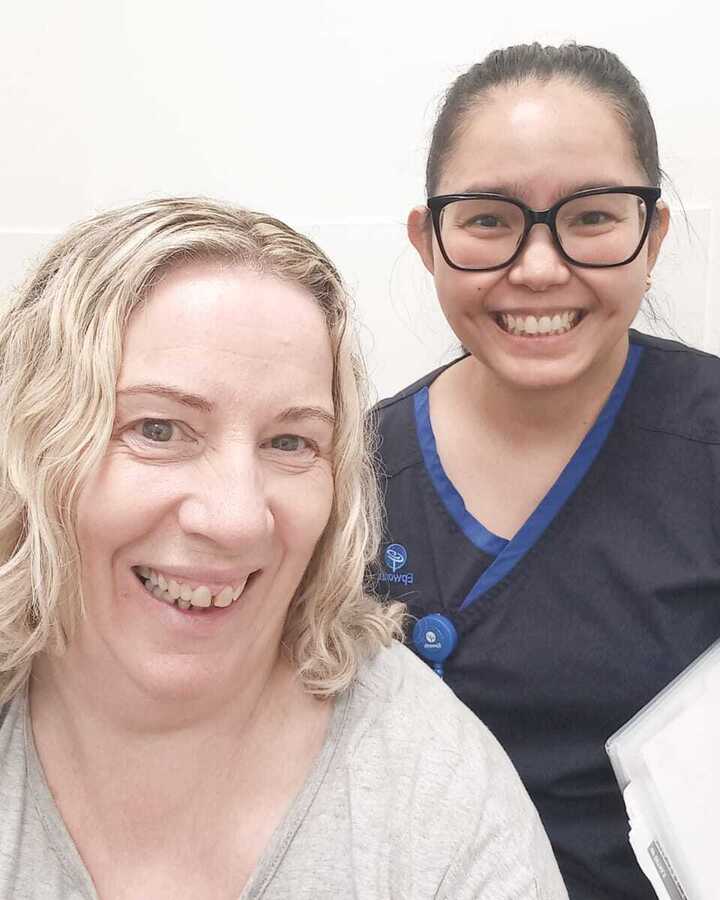During my recent visit to the Epworth Hospital in Melbourne’s inner eastern suburb of Richmond where my mother was undergoing shoulder reconstruction surgery, I had the pleasure of meeting Rachel, a Filipino nurse whose professional journey exemplifies the path many healthcare professionals take in pursuit of their dreams of working in an overseas healthcare institution.
Rachel’s story particularly resonated with me as someone involved in OET (Occupational English Test) training. Her journey from the Philippines to Dubai’s Latifa Hospital, and finally to Melbourne’s prestigious Epworth Hospital, showcases the opportunities available to healthcare professionals who successfully navigate the international medical registration process.
“The transition wasn’t always easy,” Rachel shared as she helped my mum prepare to be admitted for surgery. “Working at Latifa Hospital in Dubai was intense. The emergency department was constantly busy, with patients flowing in 24/7, and while the experience was invaluable, the pace was relentless, and the long shifts were physically demanding.”
Rachel spent three years in Dubai, building her clinical expertise and adapting to an international healthcare environment. However, she had always dreamed of working in Australia, known for its excellent healthcare system and work-life balance. “The OET exam was a crucial stepping-stone,” she explained. “It wasn’t just about reaching the level of English proficiency that would be accepted by the institution, preparing for the OET prepared me for the type of professional communication I now use every day at the Epworth.” Looking back at the role play she said smiling, I mean I thought it was funny at the time and wondered how I would get through it without laughing out loud, but who would have thought I would be using similar language to the language I used to prepare for that role play every day as a registered nurse in Melbourne.
Rachel told me that the contrast between her experiences in Dubai and Melbourne was striking. “At the Epworth, the nurse-to-patient ratio allows for more meaningful interactions with patients. I can spend time understanding their concerns, explaining procedures, and providing comprehensive care without feeling rushed. This patient-centered approach aligns perfectly with my own personal goals of being the best registered nurse I can be.
When asked about life in Melbourne, Rachel’s face lit up. “The work culture here values work-life balance. Unlike Dubai, where I was often too exhausted to do anything after shifts even though we all lived in staff accommodation directly behind the hospital, I now have time to go out with my husband and explore Melbourne’s famous cafes, attend festivals, and generally enjoy a slower pace of life. The hospital’s roster system ensures I get enough time off to rest and recharge my batteries. And of course I can plan ahead for social activities.”
Rachel’s success story highlights several key aspects of international nursing registration:
- The importance of strong English communication skills, particularly in healthcare settings
- The value of experience in different healthcare systems
- The role of professional qualification exams like the OET in facilitating international mobility
- The adaptation required when transitioning between different healthcare cultures
For nurses considering a similar path, Rachel emphasizes the importance of thorough preparation. “The OET exam wasn’t just a test to pass; it was preparation for real-life clinical communication. The scenarios we practiced during OET training are situations I encounter daily at the Epworth.”
As our conversation concluded, Rachel helped my mum into a gown and compression socks. Seeing her working so confidently and obviously enjoying her tasks reminded me that her journey from the Philippines to Melbourne, via Dubai, serves as an inspiration for healthcare professionals worldwide. It demonstrates that with the right preparation, determination, and qualifications, international nursing careers can lead to both professional satisfaction and personal fulfillment.




